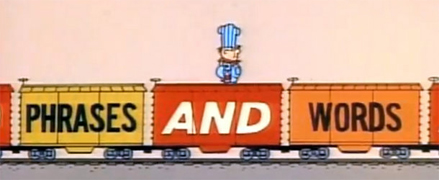 Today’s ACT question of the day is an English question that, at its heart, is all about coordinating and subordinating conjunctions! (Whoa.) It’s not a real brain buster, don’t worry.
Today’s ACT question of the day is an English question that, at its heart, is all about coordinating and subordinating conjunctions! (Whoa.) It’s not a real brain buster, don’t worry.
In this question, a government agency was created to license radio stations, _____ it didn’t have any power over these stations. What word did you fill in there naturally? Remember that word.
These two clauses (or sentence chunks, or ideas) are of equal importance. The second one is kind of surprising, given that this agency was created for something having to do with radio stations. The word you filled in was probably but, which is correct. (The word in the sentence as it is provided is “because”, which does not create the right relationship between the fact that the agency was created but had no power.)
You’re done with what you need to know to answer this question, but please allow me a brief advertisement for coordinating and subordinating conjunctions.
A conjunction is something that joins things together – in grammatical terms, the conjunction is a word that links two ideas together.
Coordinating conjunctions (maybe you remember FANBOYS – for, and, nor, but, or, yet, so) link two ideas of equal importance. A comma is usually involved, but not always. You can use one of these FANBOYS if you could swap the order of the ideas and the sentence would still be grammatically legal; in this case, we could say something like, “The agency had no power to regulate radio stations, but it was created to license them,” and it would still work even if it’s not the world’s greatest sentence.
Subordinating conjunctions (no cool acronym but they’re words like because, if, then, although, and when) link two ideas when one is dependent on the other. (See what I did there? I used one in the definition itself. We can’t really say, “One is dependent on the other when subordinating conjunctions link two ideas together.”) Another example: “My dog turns around three times before going to sleep.” To rearrange this sentence effectively, the conjunction has to travel along with the idea; it can’t stay in its original home, which is how we know that second clause is subordinate. We would have to make it: “Before going to sleep, my dog turns around three times.”
There is a lot more to say on the topic of conjunctions, but if you can remember FANBOYS and this idea of clauses depending on each other (or not), you’ll be able to tackle these English questions more quickly when you take your test.
